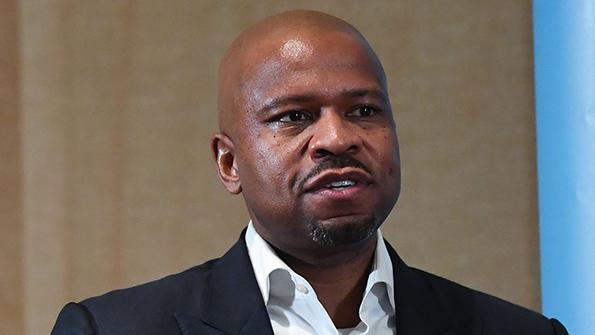
LONDON—Boeing’s model of bidding low and taking on fixed-price contracts has provided the company with several important contracts from the U.S. government, but that model also has meant cost overruns and schedule delays.
Ted Colbert, who has been the company’s defense and space CEO since late March, says he has seen lessons learned from the company’s recent past, but is not committing to extensively changing its process.
“Every single one of those programs, we believe, have tremendous opportunities in the future, and that is why we’re doubling down on our efforts to make sure that we’re delivering to our customers needs,” Colbert told reporters on the eve of his first Farnborough Airshow in the role. “As far as the contractual mechanisms going forward, that will be program by program, customer by customer, obviously mostly through our federal government customer because that’s how we sell mostly around the world, and we’ll take the approach that makes the most sense.”
Boeing’s major wins in U.S. government programs—such as the KC-46 tanker, T-7 trainer, VC-25B Air Force One replacement, MQ-25 carrier-based refueling drone and MH-139 Gray Wolf helicopter—have filled the company’s production schedules, but they all have led to significant cost overruns. The KC-46, for example, has reached more than $5.4 billion in charges and the contract for the VC-25Bs, which has now caused $1.2 billion in losses, led Boeing CEO Dave Calhoun to say the company should not have taken the deal.
“We can keep looking backwards, you know, forever. But the goal right now is to deliver two great airplanes to the federal government, to our customer the Air Force,” Colbert says of the VC-25B. “And so, the lessons are important to us, we are applying them moving forward obviously working on things like the schedule and the approach to getting them done, etc. … I won’t go into a bunch of specifics, but trust that we made changes to the program.”
On these programs, Colbert says his plan as the new CEO of defense and space is to “stay close to our customers,” and—for programs still in development—mature the needed technologies.
Some in the Pentagon, however, have been critical of Boeing’s responsiveness. U.S. Air Force acquisition head Andrew Hunter recently said the service is having trouble getting the information it needs from the company to move ahead on contract decisions. Specifically, Boeing’s slow response has slowed production contracts for F-15EXs because it has been “harder than it needs to be.”
Colbert says this issue is a “personal interest to me and our leaders,” and the issue has not necessarily been a lack of response but the complexity of the process. For example, a request to detail the reasonability of a price requires extensive analysis, done by humans, that requires back-and-forth discussions.
“So that process sometimes can be complicated, and so anyway I’ll just say that it is a personal interest to me from a values perspective, our folks know that it is important to provide our government whatever they need so that we can move programs,” Colbert says.
Boeing is negotiating contracts on critical programs, including the next production lot for the F-15EX fighter for the U.S. Air Force. Earlier this week, the company said it expects the price for the fighter to remain stable despite ongoing inflation and supply chain issues. Colbert says addressing cost issues, including wage escalation, is a real challenge and cost increases may be coming.
“My intent, right now, is to work with our government customers and have a discussion about the realities of the environment we’re in and when that changes, it changes, and we go through a process to do that,” Colbert says.

